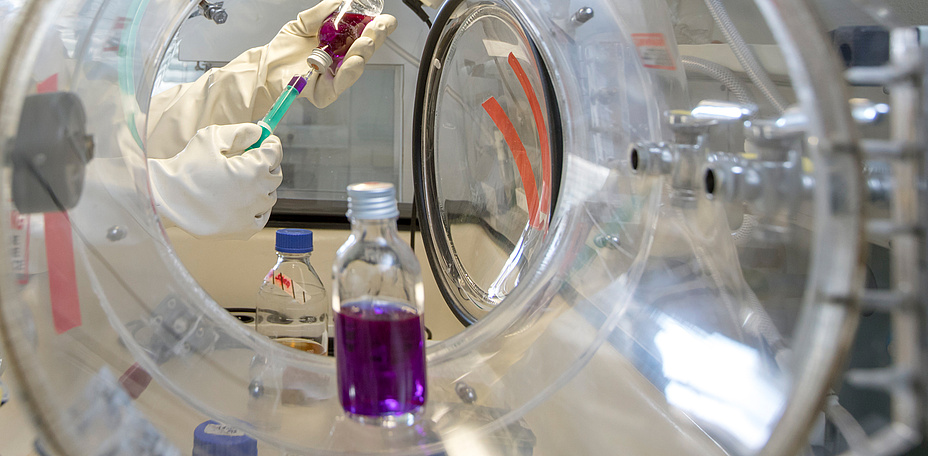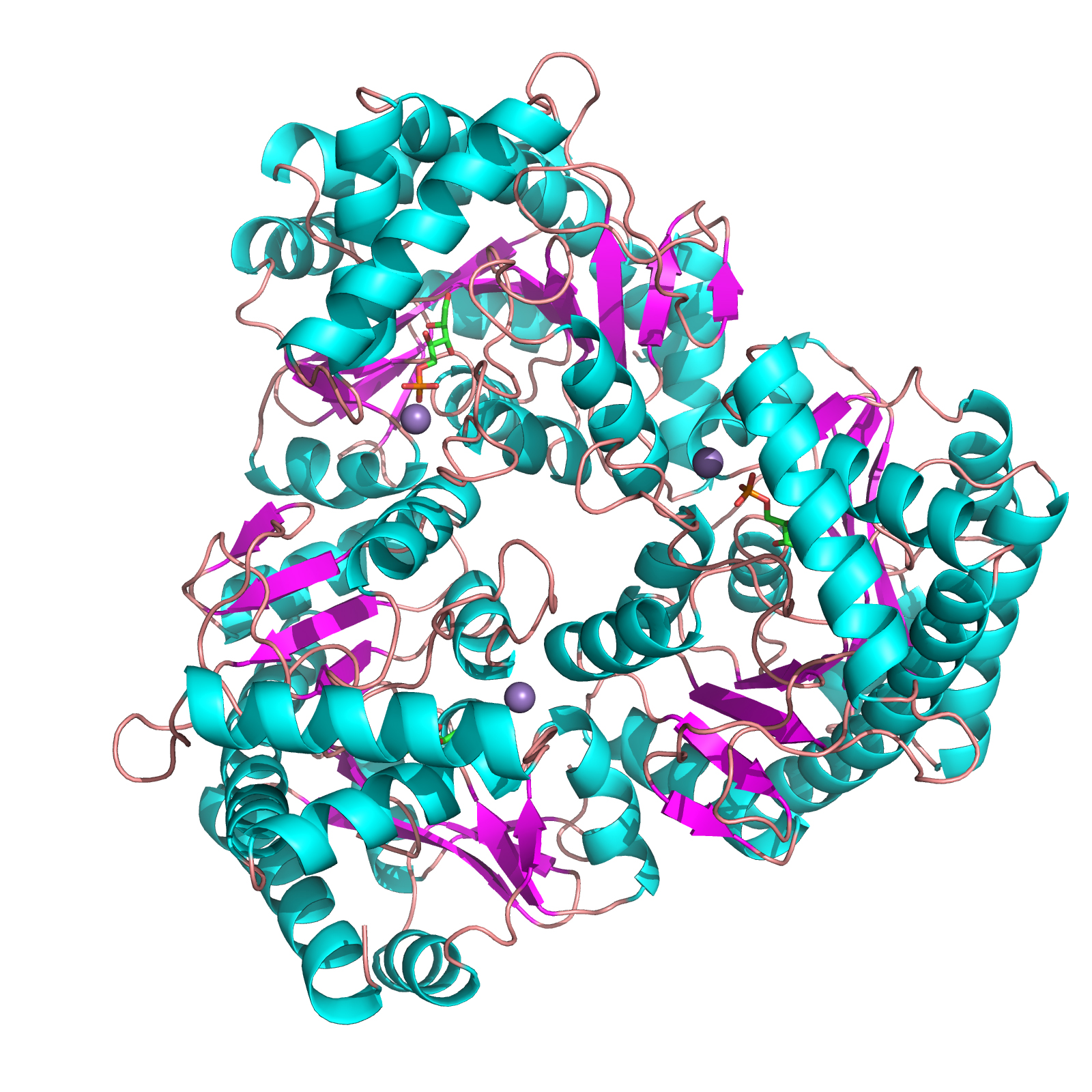RNA basic building block produced biocatalytically for the first time

Due to the COVID 19 pandemic and the associated intensive search for therapeutics and vaccines, the chemical substance class of nucleosides is experiencing an enormous increase in interest. Natural and synthetic nucleosides have an antiviral effect and can act as building blocks of ribonucleic acids (RNA). When incorporated into RNA, novel interactions within the macromolecule result with positive consequences for stability and biological effectiveness.
In medicinal chemistry, the molecular family of carbon (C)-nucleosides is particularly in demand. These differ from the naturally more frequently occurring nitrogen (N)-nucleosides – the classical building blocks of RNA – in the way the sugar is linked to the so-called nucleic base. Instead of a carbon-nitrogen bond, C-nucleosides have a carbon-carbon bond. This is biochemically much more stable and gives active ingredients a longer biological half-life. For the first time, two researchers from Graz University of Technology and the acib competence centre (Austrian Centre of Industrial Biotechnology) have now succeeded in biocatalytically producing C-nucleosides with the help of enzymes. The concrete results have been published in Nature Communications.
Yes to the enzyme "YeiN”
Bernd Nidetzky, Head of the Institute of Biotechnology and Bioprocess Engineering at TU Graz and at the same time Scientific Director of the Austrian Centre of Industrial Biotechnology (acib), and Martin Pfeiffer from acib discovered and characterized in a study the enzyme "YeiN", which can link the two nucleoside building blocks ribose-5-phosphates and uracil by means of a specific carbon bond. They are the first researchers worldwide to demonstrate an enzyme that is a suitable biocatalyst for the production of C-nucleosides.
Efficient and eco-friendly production
With the help of the catalytic power of "YeiN", the Graz-based company was able to produce several derivatives of the important C-nucleoid pseudouridine. They were also able to show that one of these derivatives can be incorporated into RNA and thus enable the modification of RNA. This is particularly relevant for the production of RNA-based therapeutic products, as the incorporation of pseudouridine into the RNA increases stability and half-life and thus improves the effectiveness of therapeutic RNA, such as a vaccine. "In our study we show that pseudouridine can be produced biocatalytically. Compared to a purely chemical synthesis, this is a much more efficient way, since fewer reaction steps and no toxic chemicals are required. The biocatalytic production of C-nucleosides is therefore a very strong, elegant alternative to classical chemical synthesis and even superior to it in terms of efficiency," says Bernd Nidetzky. Based on the findings published in Nature Communications, research can now be conducted to expand the substrate spectrum of "YeiN". The goal? The biocatalytic synthesis of further relevant C-nucleosides.
RNA vaccines
The first comprehensive vaccinations against COVID-19 with RNA vaccines have been running for a few days. These completely novel vaccines contain genetic information of the pathogen and induce cells to produce a viral protein, which is then presented to the immune system. The subsequent immune reaction protects the body from an actual virus infection. If one is already infected with the virus, antiviral drugs can prevent the virus from multiplying.
The C-nucleoside based drug Remdesivir has these necessary antiviral properties and is effective against a number of RNA viruses, including corona and ebola viruses. The active ingredient has received conditional approval in the EU for the treatment of COVID-19 patients. The biocatalytic production of C-nucleosides could provide further impetus for this new hope as well as RNA vaccines based on C-nucleosides.
Bibliographical data of the publication
Martin Pfeiffer, Bernd Nidetzky:
Reverse C-glycosidase reaction provides C-nucleotide building blocks of xenobiotic nucleic acids.
Nature Communications, December 2020. DOI: 10.1038/s41467-020-20035-0
This work is anchored in the Field of Expertise "Human & Biotechnology", one of the five main fields of research at Graz University of Technology.
Kontakt
Bernd NIDETZKY
Univ.-Prof. Dipl.-Ing. Dr.techn.
TU Graz | Institute of Biotechnology and Biochemical Engineering
Phone: +43 316 873 8400
bernd.nidetzky@tugraz.at
Martin PFEIFFER
Dipl.-Ing. BSc
acib GmbH
Mobile: +43 664 2173787
martin.pfeiffer@tugraz.at




